sanitation
AL Pledges to Expand Modern Urban Facilities to Every Village in Smart Bangladesh
Ahead of the upcoming 12th National Parliamentary Election, the ruling Awami League has announced its election manifesto, committing to extend modern urban amenities to every village.
The manifesto, with the slogan “Smart Bangladesh: Visible Development, Increased Employment,” was announced by Awami League President and Prime Minister Sheikh Hasina today (December 27, 2023) at the Pan Pacific Hotel Sonargaon in Dhaka.
The manifesto promises to enhance the quality of life in villages by providing improved roadways, communication, clean drinking water, modern healthcare and medical treatment, quality education, advanced sanitation and waste management, increased electricity and fuel supply, computer and high-speed internet facilities, and expanded markets. These initiatives aim to bring all the comforts of modern cities to every village.
In Smart Bangladesh Awami League seeks more safeguards for minorities, end of intolerance
To ensure a reliable fuel supply, the party plans to continue encouraging and supporting the installation of biogas plants and solar panels on a group basis. The establishment of agricultural machinery service centers and workshops in villages will expand rural mechanization services, including machinery repair. This initiative will also provide training for rural youth and agricultural entrepreneurs, promoting productive employment.
The manifesto includes plans for private sector investment and loan support for small and marginal entrepreneurs manufacturing and marketing light machinery. In line with the economic development of villages, cultural, sports, and entertainment programs will be expanded. This approach is expected to reduce the urban migration trend among rural youth by creating self-employment opportunities within villages. The government will fully support young people's involvement in agriculture, industry, and business.
AL Manifesto on Significant Steps to Foster Women Entrepreneurs
Awami League says that during its previous tenure, roads in every upazila were improved and expanded, connecting each village to upazila headquarters and linking upazilas to district headquarters and national highways. Every village has been ensured electricity supply. Drinking water and sanitation facilities have been enhanced and will be further improved. The government has taken over the expenses of primary and secondary schools, and financial support is being provided for teachers' salaries in private schools. Hospitals with 50 beds in upazilas are being upgraded to 100-bed facilities. Community clinics are bringing healthcare services to the doorstep of rural residents. Every union now has computer and internet service centers, providing employment opportunities to rural youth and facilitating communication nationally and internationally.
Awami League’s Manifesto: Mega Projects for Accelerating Economic Momentum
The expansion of communication, electricity, and internet services has accelerated rural production and market systems. Agricultural inputs have become more accessible, and the market for agricultural products has expanded. The extension of agricultural technology and the development of cottage and small industries are being expedited. Activities in both agricultural and non-agricultural sectors have multiplied significantly in rural areas.
2 years ago
ADB provides $90 million for clean water, sanitation services in the Hill Tracts
The Asian Development Bank (ADB) and the Government of Bangladesh today (November 28, 2023) signed a $90 million loan agreement to develop infrastructure and systems that will provide clean drinking water and sanitation services in Bandarban, Lama, and Rangamati towns in the Chattogram Hill Tracts (CHT) region.
Md. Shahriar Kader Siddiky, Secretary, Economic Relations Division (ERD), and Edimon Ginting, Country Director, ADB, signed the loan agreement on behalf of Bangladesh and ADB, respectively, at a ceremony at ERD in Dhaka.
“We are pleased to support the government in pursuing inclusive and climate-resilient development by providing clean drinking water and sanitation services and improving solid waste management in the lagging Chattogram Hill Tracts (CHT) region,” said ADB Country Director Ginting.
Read more: Latest ADB report predicts a better year for Bangladesh in FY2024
“The improved services will reduce the risks of water-borne diseases, enhance health and economic opportunities, and benefit women who spend considerable productive time daily collecting water and managing wastes,” he said.
The Chattogram Hill Tracts Inclusive and Resilient Urban Water Supply and Sanitation Project will develop water treatment plants with a total capacity of 44 million liters per day in Bandarban, Lama, and Rangamati towns, as well as 24 km of transmission line and 340 km of new water distribution network to connect to households.
In Bandarban and Lama, the project will also modernize sanitation and solid waste management systems through rehabilitated public toilets and the provision of vehicles to safely de-sludge fecal sludge and collect solid waste integrated with a geographic information system, and equip household waste bins with radio frequency identification (RFID) tags to track waste collection.
The project will also develop two integrated waste management facilities to treat and manage fecal sludge and solid waste, said the regional development bank.
To maximize impact and sustainability, a community awareness and behavior change campaign on water, sanitation, hygiene, climate resilience, and solid waste management will be conducted.
The campaign will target 100,000 people, with at least 60 percent participation from women and the vulnerable population.
Around 300 staff (at least 90 percent of the eligible women staff) of the Department of Public Health Engineering, hill district councils, and municipalities will be trained on climate-resilient, inclusive, and sustainable water supply, sanitation, and solid waste management service delivery.
The project will also enhance the readiness for implementation of future investments in water supply and sanitation for 31 towns by preparing feasibility studies, detailed designs, and bidding documents following approaches that promote disaster and climate resilience as well as gender equity and social inclusion.
Read more: In another first, PM Hasina opens Ctg-Cox's Bazar railway line
2 years ago
Bangladesh can support EU’s efforts to diversify production of pharmaceuticals, vaccines: PM tells EIB President
European Investment Bank (EIB) President Dr Werner Hoyer has appreciated the use of Euro 1 billion loan portfolio for Bangladesh since 2000 in areas of shared priorities.
He noted, in particular, progress in projects – under implementation – under water treatment and rail link upgradation.
Prime Minister Sheikh Hasina held a meeting with the EIB President recently at her hotel suite in Brussels.
The prime minister referred to the achievements made so far in ensuring safe water and sanitation for nearly 97 percent of the population in Bangladesh.
Also read: ‘Dear PM Hasina, 50th anniversary of EU-Bangladesh relations is the occasion to take our partnership to the next level’
She requested EIB to consider supporting river dredging, water conservation, and surface irrigation.
PM Hasina also mentioned the initiatives taken by her government to develop dual-track railway, to promote cost-effective passenger and container traffic.
She appreciated the interest of multilateral development banks in financing such impactful connectivity projects.
The EIB president referred to the loan package of Euro 250 million signed in 2021, said the Ministry of Foreign Affairs on Thursday (October 26, 2023).
He shared that the disbursement of the amount would commence soon for the purpose of health system strengthening.
Also read: PM leaves for Belgium Tuesday on a significant EU visit
The EIB president observed that Bangladesh was in an ideal situation to roll out vaccine production.
The prime minister informed him about the measures taken by the government to develop a vaccine production facility and a molecular testing laboratory.
She suggested that EIB extend support for necessary infrastructure development for these initiatives.
She reiterated that Bangladesh could support EU’s efforts to diversify production of pharmaceuticals, vaccines and medical equipment.
She also discussed possible support measures for combating dengue outbreaks, including through vaccines.
The EIB is the largest multilateral public bank in the world.
In 2022 it financed around Euro 10.8 billion in investments outside the European Union via EIB Global, the arm of the bank created that year for activities beyond Europe.
Since the beginning of its operations in Bangladesh in 2000, the EIB has supported six projects in the country and has invested more than Euro 670 million in water, transport and health projects.
Also read: PM Hasina asks EU to extend GSP+ facilities for 6yrs to graduating LDCs like Bangladesh
END/UNB/MK/KW
2 years ago
Dhaka seeks robust action to ensure safe drinking water, sanitation for all in healthcare facilities
Foreign Minister AK Abdul Momen has sought more robust action to ensure safe drinking water, sanitation and hygiene for all in healthcare facilities.
Globally, 78 percent healthcare facilities had a basic water service and 51 percent had basic hygiene ensured in 2021.
Around 10 percent of these facilities used by 780 million people had no sanitation.
"Against this backdrop, we need more robust action than ever," Momen said while speaking at the high-level event, entitled “Water, Sanitation and Hygiene in Healthcare Facilities: Lesson Learned and the Way Forward”, jointly organized by Hungary and the Philippines at the United Nations Headquarters on Friday.
Read more: 26% of the world have no access to clean drinking water: UN
He highlighted the major achievements of Bangladesh under the visionary leadership of Prime Minister Sheikh Hasina in ensuring safe drinking water, sanitation, and hygiene for all in the country.
Referring to the National Strategy for Water supply and Sanitation 2021, he said that in Bangladesh around 98 percent of the people have access to drinking water, more than 80 percent to improved sanitation facilities, and nearly 75 percent to hand-washing facilities.
Bangladesh pioneered the community led approach for promoting sanitation, which is now recognized and replicated in many developing countries, Momen said.
In light of Bangladesh’s successful experiences, Momen offered specific recommendations to check the lack of progress in water, sanitation, and hygiene service worldwide.
Péter Szijjártó, Minister of Foreign Affairs and Trade of Hungary, Maria Antonia Yulo-Loyzaga, Secretary, Department of Environment and Natural Resources Republic of the Philippines and Irakli Karseladze, Minister of Regional Development and Infrastructure of Georgia also spoke at the event.
A significant number of diplomats, high officials of the UN and its various organizations, international NGOs working in the water sector and private stakeholders were present at the event.
Foreign Minister Momen also attended a high-level side event entitled “Revitalizing Social Protection Policies for Creating More Accessibility to Drinking Water” jointly organized by Bangladesh Social Scientists Foundation together with BRAC, AOSED, BWOT, Jago Nari, GRAUS and SDA at the Permanent Mission of Bangladesh to the UN in New York.
Momen also held a bilateral meeting with Nik Nazmi bin Nik Ahmad, Minister for Natural Resources, Environment and Climate Change of Malaysia and discussed issues of mutual interest.
2 years ago
Climate hotspots: 1m people to get safe water, sanitation services through Brac project
One million marginalised people will get safe water and sanitation services at 45 upazilas of 14 districts from four climate hotspots through a new project implemented by Brac.
The project "Equitable and Sustainable WASH Services in Bangladesh Delta Plan Hotspots 2022-2026" started its journey with an inception workshop Wednesday in the capital.
The Dutch Embassy will provide financial support to the project. IRC Netherlands will join Brac as the implementing partner, according to a media statement.
Md Khairul Islam, the Local Government Division's additional secretary for the water supply wing, said only 33 percent of households had hygienic latrines and 25 percent had unhygienic latrines in 2003. "Open defecation was very common."
"Now in 2023, almost every family has access to latrines. The present status and sanitation of Bangladesh in coping with the challenges of climate change and global warming and in protecting the environment have been highly acclaimed by the development partners," he added.
Dutch Ambassador to Bangladesh Anne van Leeuwen said her country and Bangladesh began a partnership with WASH in 2005.
"Our partnership with Brac began just next year in 2006. Some aspects of the Bangladesh Delta Plan are huge and expensive. But there are WASH solutions also that are not expensive, and they are innovative too, in terms of ensuring equitability and sustainability," he added.
Read more: Experts for increased allocation in water, sanitation, hygiene
Asif Saleh, executive director of Brac, said, "We have progressed a lot but there are still 20 million ultra-poor in this country. The conversation has started everywhere that water is going to be the next scarcity. There is going to be a severe water crisis if we don't act now, and if we don't have serious planning in place."
The Brac WASH programme implemented several projects with "innovative approaches and strategies" to achieve the goals of safe water and sanitation from MDGs to SDGs. In line with that, this new project is striving to improve the gap between access to and quality of services, especially for the marginalised communities in hard-to-reach areas.
3 years ago
Climate change threatens access to water, sanitation
Climate change is set to significantly increase pressure on people's access to water and sanitation unless governments do more to prepare key infrastructure now, according to the UN.
Climate change is already posing serious challenges to water and sanitation systems in countries around the world, Thomas Croll-Knight, spokesperson for the UN Economic Commission for Europe (UNECE), said Friday.
Despite being a priority aligned with the Paris Climate Agreement, plans to make water access possible in the face of climate pressures, are absent in the pan-European region, according to the UNECE and the World Health Organization's Regional Office for Europe.
And "in most cases" throughout the region of 56 countries, there is also a lack of coordination on drinking water, sanitation and health.
From reduced water availability and contamination of water supplies to damage to sewerage infrastructure, these risks are set to increase significantly unless countries step up measures to increase resilience now, Croll-Knight said.
Also read: Climate change costs poor women in Bangladesh up to 30pc of their outgoings
It is estimated that more than one-third of the European Union will be under "high water stress" by the 2070s, by which time the number of additional people affected (compared to 2007) is expected to surge to 16–44 million.
And globally, each 1°C increase caused by global warming is projected to result in a 20 percent reduction in renewable water resources, affecting an additional seven percent of the population.
Meanwhile, as governments prepare for the next UN climate conference (COP 27) in November and the UN 2023 Water Conference, the UNECE painted a potentially grim picture moving forward in parts of Europe.
From water supply and sewerage infrastructure damage to water quality degradation and sewage spillage, impacts are already being felt.
For example, increased energy demand and disruption to treatment plants in Hungary are threatening significant additional operational costs for wastewater treatment.
Challenges in ensuring adequate water supply in the Netherlands have increased, while Spain struggles to maintain a minimum drinking water supply during drought periods.
Also read: President Hamid urges global efforts to combat climate change
Despite water management adaptation initiatives in many nationally determined contributions (NDCs) and national action programmes (NAPs) under the Paris Agreement, governance mechanisms and methods for integrating water and climate are absent, leaving the interface of drinking water, sanitation and health worryingly unaddressed, in most cases.
3 years ago
IsDB to provide $56 million to improve sanitation, hygiene in Bangladesh
Islamic Development Bank (IsDB) will provide USD $ 56 million to improve sanitation and hygiene services for 14 lakh (1.4 million) people of 10 priority towns in Bangladesh.
A loan deal in this regard was signed between Econmic Relation Division (ERD) and IsDB) here on Sunday.
Under the loan agreement, IsDB will provide $ 56 million, out of which $ 36.4 million is loan and S$ 19.6 million is grant.
Read: TCB to provide food support to 1 crore families during Ramadan: Tipu
Fatima Yasmin, secretary of Economic Relations Division, ministry of finance has signed the agreement documents with IsDB.
The purpose of the loan is to improve quality of lives and livelihoods for 1.4 million citizens of ten selected priority towns including Narsingdi, Shariatpur, Cumilla, Lakshmipur, Jamalpur, Notore, Pabna, Sirajgani, Bagerhat and Patuakhali.
The project implementation will ensure safer, adequate, equitable, sustainable sanitation, hygiene, facilities and services with a special focus on the urban poor women and children in 10 towns of Bangladesh.
The $36.4 million loan shall bear an interest rate approximately 3.20%. The total financing shall have a maturity of 20 years including a grace period of 5 years.
IsDB is one of the leading and trusted development partners of Bangladesh.
Read: OPEC provides $ 75 million to Bangladesh for pandemic recovery
The purpose of the bank is to foster the economic development and social progress of member countries and Muslim communities individually as well as jointly in accordance with the principles of Islamic Shari’ah.
Bangladesh is one of the founding members of the IsDB. The development partner has been providing financial assistance since its inception in the form of grant, project loan, trade financing, private sector financing, export credit guarantee etc.
As of now IsDB has approved approximately 22.51 billion US$. IsDB’s project financing in the public sector of Bangladesh mainly focuses on sanitation, water sector, education, power, rural infrastructure, poverty alleviation and agriculture.
4 years ago
Billions without clean water and sanitation, a ‘moral failure’: Volkan Bozkir
Access to water is not just about “liquid in a bottle” but instead touches on universal issues such as dignity, opportunity and equality, the UN General Assembly President said on Thursday, in opening a high-level meeting on ensuring water and sanitation are available to all.
4 years ago
WB, Bangladesh sign $200m deal for improved sanitation, water access
The World Bank and Bangladesh on Tuesday signed a $200 million financing agreement to help 3.6 million people access hygienic sanitation facilities and about 600,000 people access clean water in rural areas.
5 years ago
Budget fails to prioritise health and hygiene: Speakers
The finance minister’s proposed budget fell short of focusing on health and hygiene as a key priority in the post-Pandemic situation, even though the multi-sectoral damage inflicted by the virus has vividly embodied the necessity to meet the challenges in health and WASH sector, said speakers in a press conference on Sunday.
5 years ago
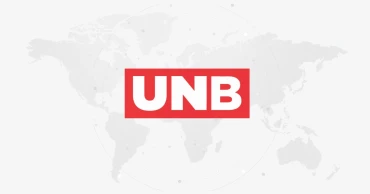
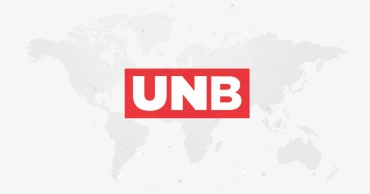
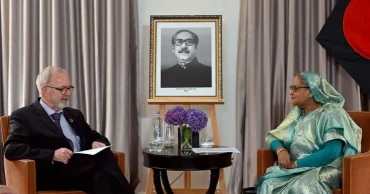
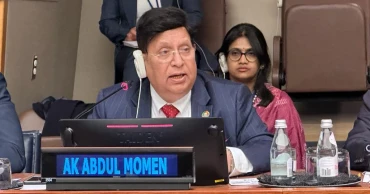
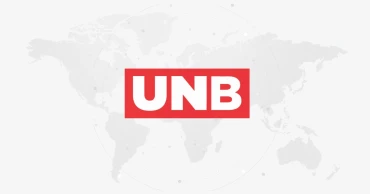


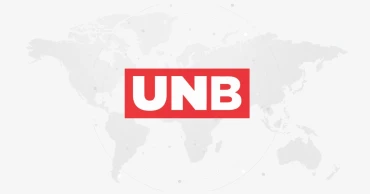
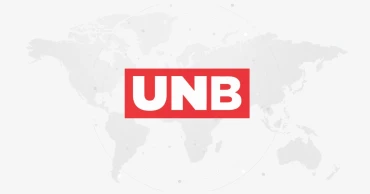
.jpg)






